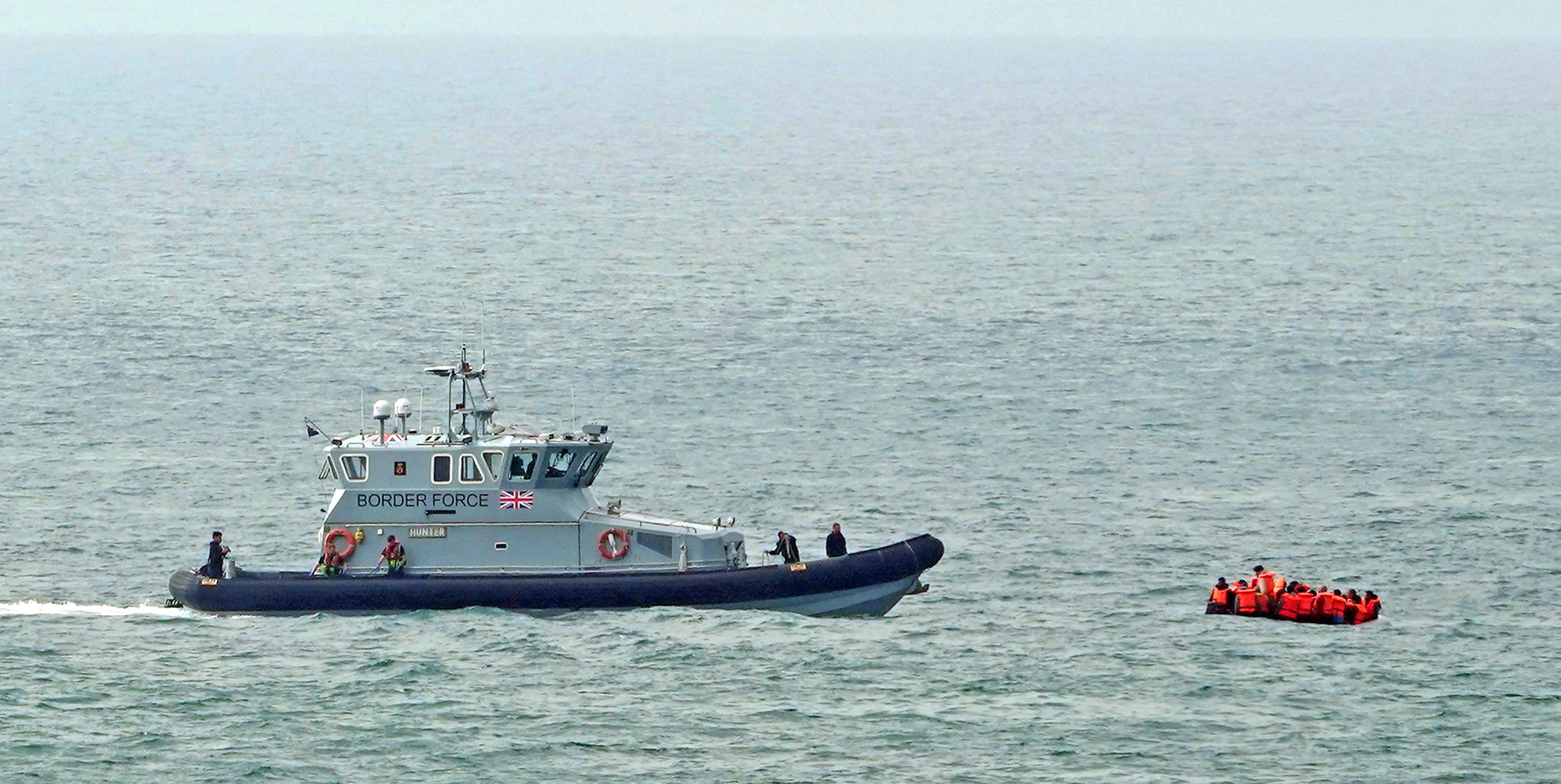The government’s attitude towards asylum seekers needs to change – and quickly
We need to expedite and widen our processes of resettlement before people feel desperate enough to try treacherous seas, writes Bel Trew


In the same week that at least 27 people mostly from Iraq and Iran drowned in the English Channel trying to cross to the UK, I was talking to Syrian refugees on the verge of freezing to death near the border between Belarus and Poland. Simultaneously I was speaking to desperate Syrian refugees in Lebanon who were promised resettlement in the UK nearly four years ago but have been left behind by the British authorities.
The collision of these three horrendous events and stories in the same week was galling – and telling – about miserably indifferent global attitudes towards the most vulnerable and desperate in the world.
At the same time, the British government condemned those who tried to cross the Channel by boat and those who use illegal methods to get into the European Union or further afield. They insisted refugees should instead apply for resettlement from abroad through safe legal routes. But as they were saying this I was learning about how those who had done just that were being ignored, leaving them at risk of hunger, eviction and life-threatening illnesses.
A Home Office spokesperson told us Britain has resettled more than 25,000 refugees since 2015 and is “committed” to the UK Resettlement Scheme. But the UN also told us that there are 2,000 refugees worldwide who had been accepted by the UK’s resettlement programme but are still awaiting transfer several years on.
Nearly a quarter of them are in Lebanon, a country that is in the grips of one of the worst economic collapses in 150 years and whose capital was blown up by one of the largest non-nuclear explosions in modern history. Two families in Beirut that I visited told me the delay in resettlement has left them on the cusp of starving to death. They are reduced to picking through dumpsters for rotten food to eat, to withholding life-saving medicine for their children, to praying they won’t be evicted and begging charities for help.
So they cannot win.
In the freezing cold in Belarus, Syrian and Iraqi refugees and migrants I spoke to said they were forced to take this route to a better life in Europe because the resettlement programmes were so impossibly pointless. At the same time, I was talking to three Afghan girls whose parents have been disappeared during the Taliban takeover, who are from the persecuted Hazara community and are in desperate need of a safe haven. They had managed to get to Pakistan and were asking about applying for resettlement anywhere safe, but no one even answers their emails.
I frequently speak to refugees in Libya in a similar situation. In fact, my inboxes are packed full of desperate people and families I’ve met trying to, as any person would, seek a better life.
They are all told to apply through safe and legal routes. But to no avail. And so, that is why so many end up risking and losing their lives trying to come through illegal unsafe routes. I have seen this unfold in real-time in the Mediterranean where many risk everything to cross from Libya. I have watched rescue workers and medics on rescue ships, now so vilified by European countries, try desperately to save lives and watch helplessly as families – including women and children – drown.
I’ve sat in those squalid, disgusting migrant prisons in Libya and heard the stories of modern-day slavery and torture for extortion.
I personally believe there has to be a paradigm shift in attitudes towards the movement of people, towards borders, towards duty of care to the most vulnerable, and particularly those who have been made so vulnerable because of our political and military meddling. We need to expedite and widen our processes of resettlement before people feel desperate enough to scale barbed-wire fences or cross treacherous seas.
While that might be dismissed as naive and earnest, at the very least we have to honour the promises we have already made. The Covid-19 pandemic did indeed shut down many resettlement programmes because of freezes on travel and airport closures across the word. But with those restrictions having been lifted in many areas, there is no reason not to bring these vulnerable families to the UK before the worst happens. This needs to happen now before a potential new wave of coronavirus means travel restrictions become even tighter again.
It also needs to happen now because these families don’t have time. Both the families I met in Lebanon were facing imminent eviction because of unpaid rent. The fathers (who are the breadwinners) in both families didn’t have the proper paperwork to secure employment and so they weren’t able to put food on the table. In Lebanon there is only a couple of hours of state power a day, so keeping warm is becoming impossible. With soaring food and gas prices, staving off hunger is hard.
And so as we career into winter, at the very least we must immediately make good on our promises. As citizens, we need to pressure the government to widen the resettlement programmes. Before it is too late.






Join our commenting forum
Join thought-provoking conversations, follow other Independent readers and see their replies
Comments